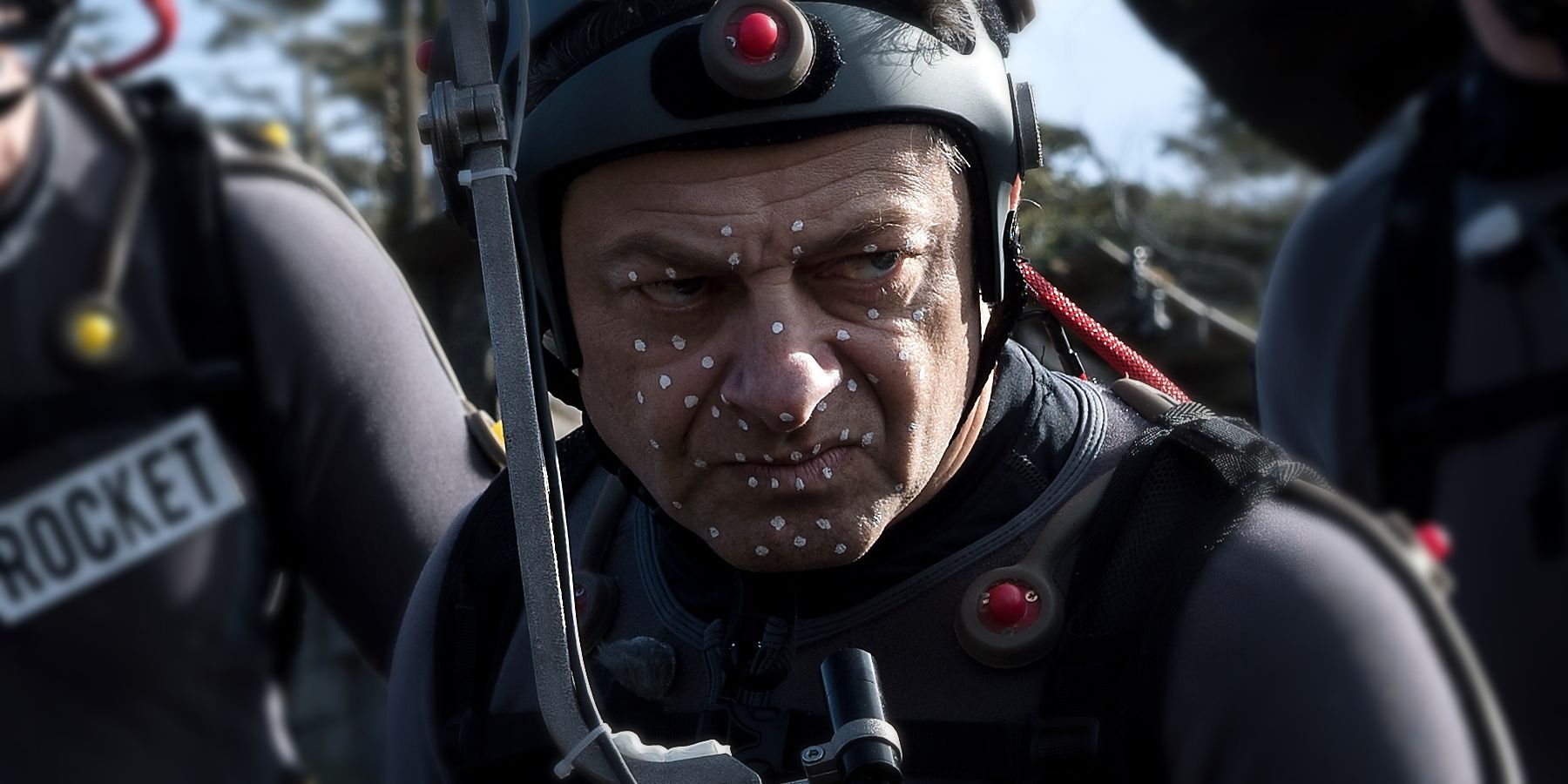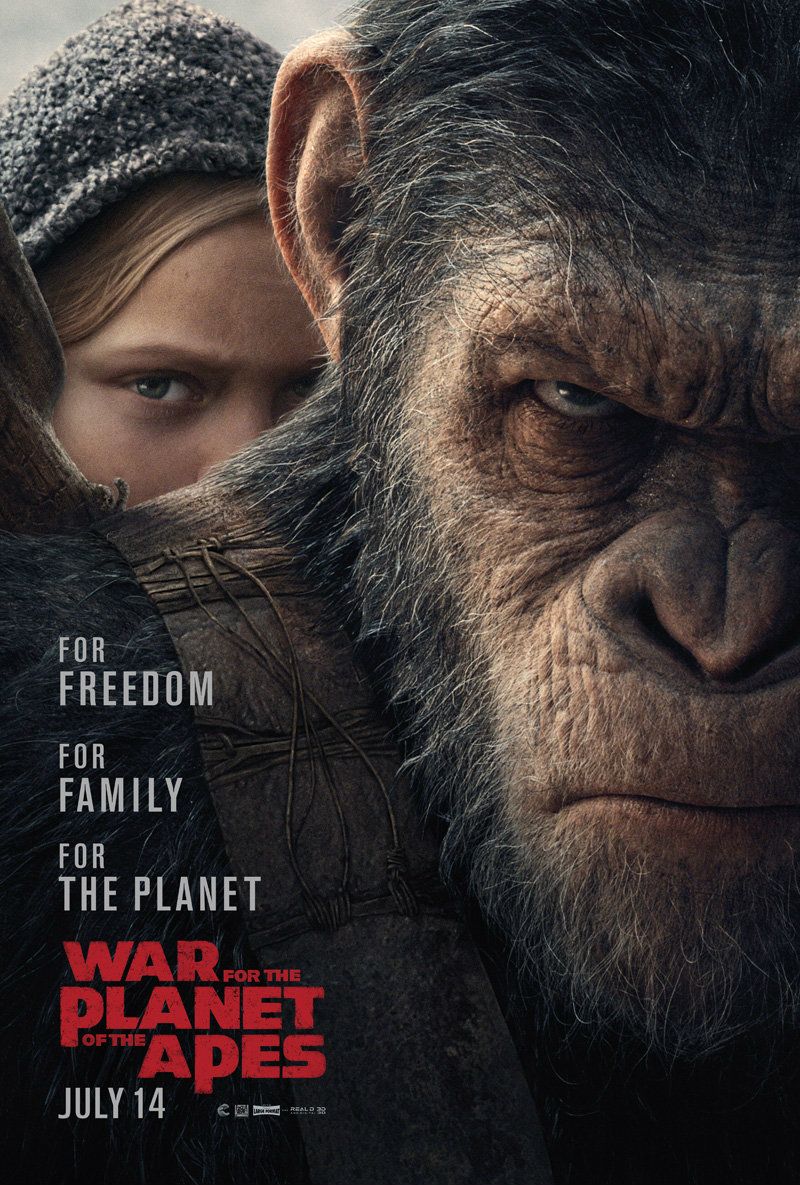Everyone knows who will ultimately win the War for the Planet of the Apes (the clue is in the title), but the third installment of Caesar's (Andy Serkis) story succeeds in making the apes' future seem imperilled. The aging, war-torn ape finds himself sick of warring with humans, and seeks to lead his band of intelligent apes away from the conflict in order to find a new home. Unfortunately, maniacal military leader Colonel McCullough (Woody Harrelson) isn't about to let the enemy get away so easily.
Serkis has appeared in a number of high-profile live-action roles - most notably as villain Ulysses Klaue in Captain America: Civil War and the upcoming Black Panther - but he's best known as an expert in, and passionate advocate of, motion capture technology. War for the Planet of the Apes breaks new ground when it comes to creating photo-realistic CGI apes and bringing the actors' performances to life, but none of it would work if audiences weren't already invested in Caesar - a character whom we first met as a baby in Rise of the Planet of the Apes.
Ahead of War for the Planet of the Apes' release, Screen Rant got the chance to speak to Serkis about playing Caesar for the third time, and about his upcoming film Jungle Book: Origins. Check out a video of the interview above, and a transcript below.
I have to say, this was a different movie than what I was expecting, in a very good way.
ANDY SERKIS: Oh good.
Because I was expecting grand battles all over the place but this kind of quieter and the great thing about it, it’s told from Caesar’s perspective. Caesar is in almost every scene. Was that a deliberate choice, to keep it focused on that character?
AS: I know that Matt [Reeves] always wanted to tell, in this episode, a Caesar-centric story, to place the audience in the mind of this character, who, up to a certain point, has been this empathetic leader. He’s been the leader of his kind and tried to create a peaceful Apes society. But the events that happen at the beginning of the movie, he suffers such personal loss, that it pitches him into this journey of revenge and hatred that Matt really wanted to put the audience in Caesar’s shoes and let them experience that and have that moral debate as they go through the movie.
You’ve had the rare opportunity to play a character, from when he’s a baby basically, to when he’s old aged. Do you think that Caesar has stayed the same “person” throughout that journey or do you think he’s become more battle-scarred on the inside?
AS: Well obviously, he would have changed but his core belief system is of fairness and understanding and empathy of others, because he was brought up with human beings – good human beings who offered him love and showed him. Unlike Koba, who was an ape in a laboratory, in Dawn of the Planet of the Apes he starts a war against Caesar because he was brought up with hatred from human beings and then actually leads the apes into a war situation. But Caesar really is, I think, someone who is egalitarian, he cares and values the opinions of the other apes and also values the possibility of peace between humans and apes, through peaceful solution.
And we see Koba kind of come back, in a way, in this movie. Caesar is really, really haunted by this act of killing another ape, basically one of his best friends. At one point in the movie he feels like, “I am Koba”. Do you think he’s the same by in the end of the movie and still feels that way?
AS: No. Fortunately, he reaches a point, he’s able to reach a point where he comes through that and able to move on. Not necessarily forgive but to actually feel that singularly killing is going to solve his loss, because it’s not. So he does find himself. And also through the other characters that he meets along that way. He meets Amiah Miller’s character, Nova, who’s almost like an angel. This young girl, who at first he doesn’t want to join the group because he feels she’ll be a burden but ends showing him compassion. Those kind of meetings. Characters like Steve Zahn’s character, Bad Ape, too, actually bring him back. Bring him back from this hell he’s swirling around in.
The technology you’ve been developing at the Imaginarium, apes are almost the perfect animal to experiment with, not only because they’re so close to us, and now you’re working on Jungle Book: Origins in post-production – what’s it like using that technology on animals whose faces are less expressive?
AS: That’s very interesting. Great question and that’s a huge challenge, and that’s been the huge challenge of our Jungle Book, is taking Christian Bale and turning him into Bagheera the panther and taking his facial expressions and designing a panther that will reflect exactly what Christian is thinking and feeling. I think, to a certain degree, it seems to be working so far, and that’s coming out next year.


